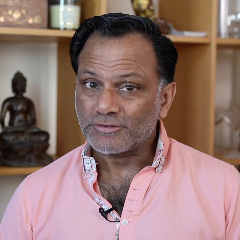You are not currently logged in. Please create an account or log in to view the full course.
Understanding Intelligence
- About
- Transcript
- Cite
Child Psychology – Intelligence, Moral Development and Social Cognition
In this course, Dr Ashok Jansari (Goldsmiths, University of London) explores the concepts of intelligence, moral development and social cognition. In the first lecture, we think about what intelligence is. In the second lecture, we think about the reasons for individual differences in intelligence. In the third lecture, we think about the environmental factors which can impact intelligence. Next, we think about what can be done to improve outcomes for individuals whose upbringing has resulted in them falling behind in their development. In the fifth and final lecture, we think about the stages of moral development and the significance of social cognition.
Understanding Intelligence
In this lecture, we think about what intelligence is, focusing in particular on: (i) the nature of intelligence being very difficult to define; (ii) the disagreement within the scientific community around exactly what intelligence is; (iii) theories which divide intelligence into different types; (iv) Binet’s early intelligence test, requested by the French government to measure the achievement of school children; (v) the evolution of this test at Stanford University; (vi) a review of intelligence testing in the statistical context of a normal distribution; (vii) the lack of cross cultural applicability of many intelligence tests, which has led to an interest in creating a cross culturally representative test of intelligence.
Cite this Lecture
APA style
Jansari, A. (2022, October 17). Child Psychology – Intelligence, Moral Development and Social Cognition - Understanding Intelligence [Video]. MASSOLIT. https://massolit.io/courses/child-psychology-intelligence-moral-development-and-social-cognition
MLA style
Jansari, A. "Child Psychology – Intelligence, Moral Development and Social Cognition – Understanding Intelligence." MASSOLIT, uploaded by MASSOLIT, 17 Oct 2022, https://massolit.io/courses/child-psychology-intelligence-moral-development-and-social-cognition

